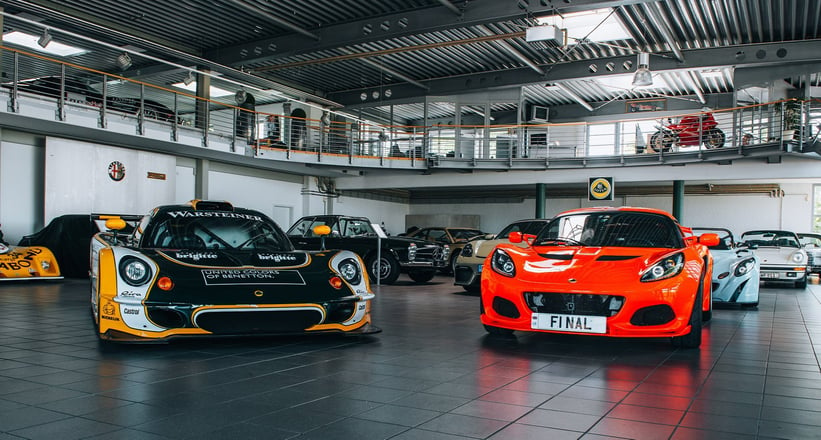

Funerals are difficult occasions at the best of times. The collective sense of loss, the bittersweet memories, the ache of regret for missed opportunities. But how does one mourn an automotive icon? What eulogy could be penned to celebrate the life of one of the most admired drivers’ cars of all time – the Lotus Elise? Let’s start by jumping behind the wheel.
We’ve been handed the keys to a piece of automotive history, the last Lotus Elise Cup 250 ever built, and we’ve been tasked with a very specific mission: to give this car the send-off it deserves. What better way to celebrate the plucky, lightweight upstart from Hethel, than by driving this final example hard and fast across 5,000 miles of European tarmac?
It’s what Colin Chapman would have wanted.
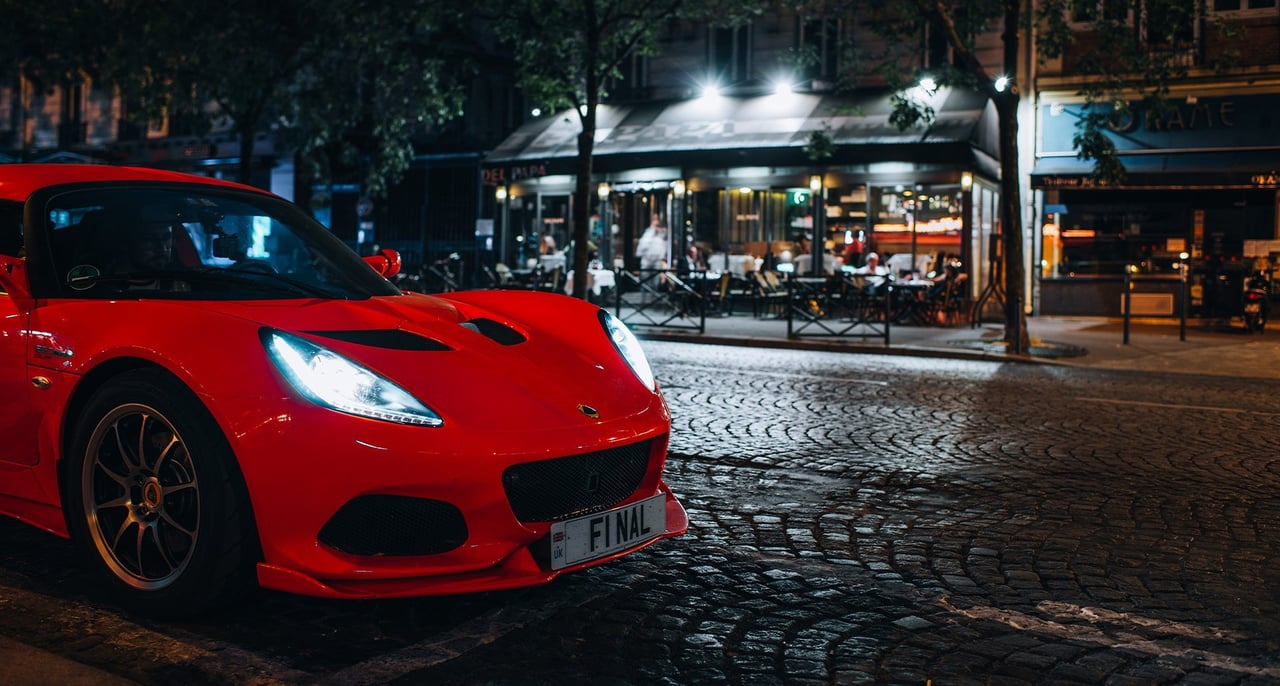
The Elise defined what it meant to drive an analogue car in the modern era. Its back-to-basics appeal has withstood 25 years of automotive peer pressure, refusing to bow to the relentless trend towards bigger, heavier, more complex cars. Lotus did what it’s always done and stuck steadfastly to the ethos of ‘simplify, then add lightness’.


The logical direction of travel is to head south, to the mountains of Northern Italy and Switzerland, via Belgium, Holland and Germany. The mighty Stelvio, Susten and Furka Passes are calling: driving nirvana for every petrolhead and precisely the kind of terrain for which the Elise was built.
On these roads, under the relentless strain of rising gradients, sudden braking zones, and tight, technical corners, the car’s chassis, suspension, and steering come alive, seeming to rejoice at the punishment. But there’s no electronic trickery here to translate the road’s surface for the driver – just pure, unfiltered connection.
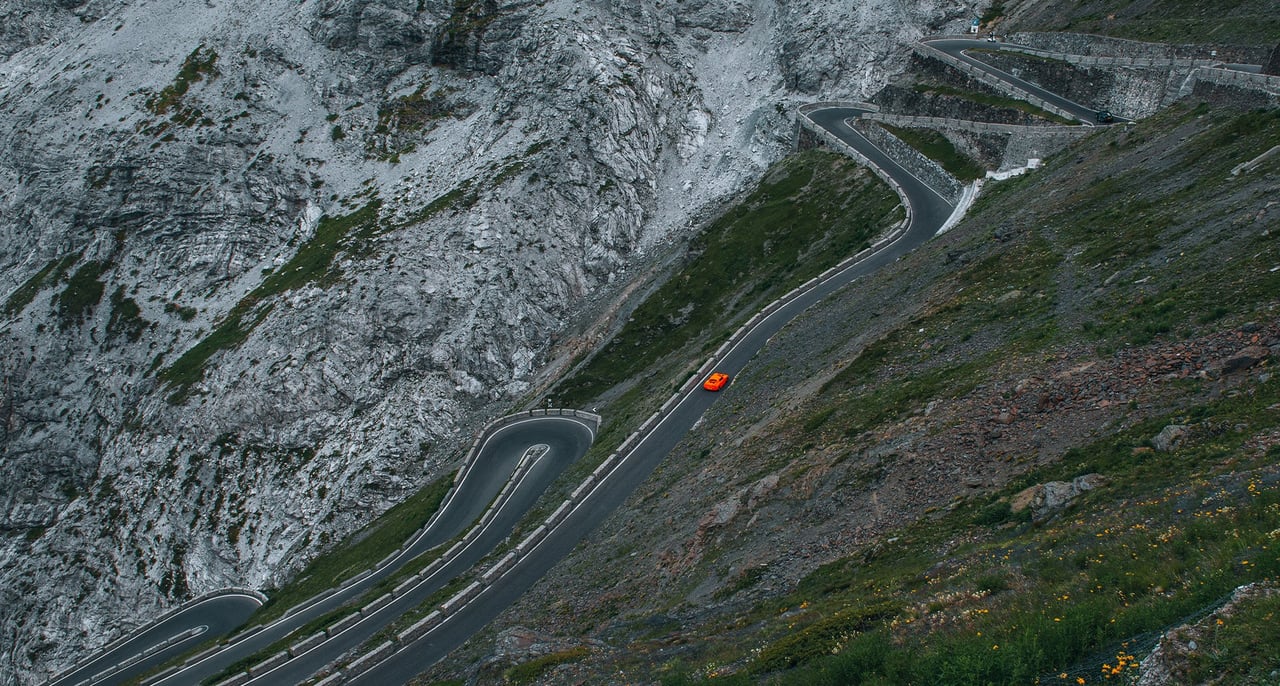
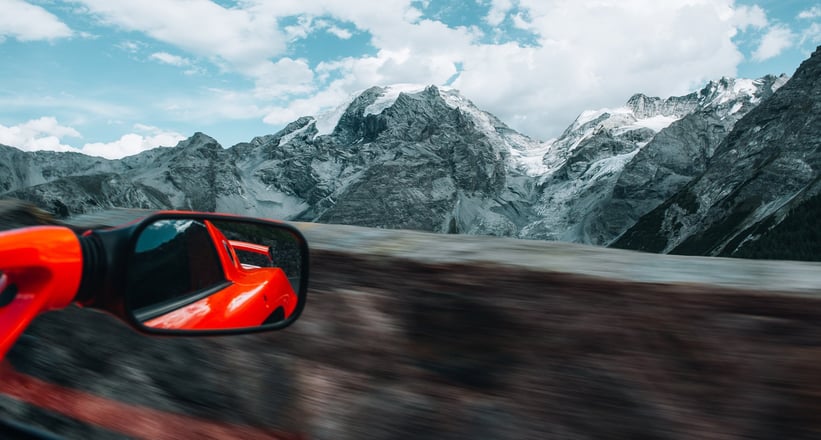
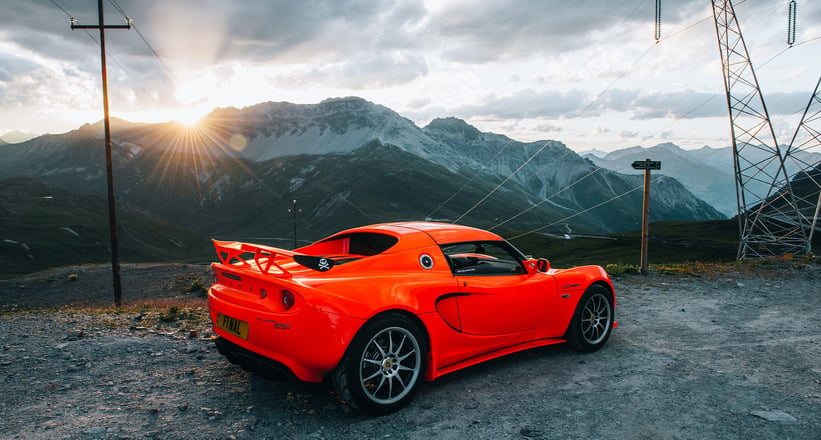
There isn’t a whole lot of power to brag about, either – 250PS wouldn’t cause many blushes among the Elise’s contemporaries. But out here, on the infinite switchbacks of the Alps, this Lotus will embarrass pretty much anything in its path. Of course, it’s not the engine doing the work, it’s the mass – or lack of it – which does the heavy lifting: 931 glorious kilograms to be exact.

Another trick up the Team Lotus founder’s sleeve was to turn up at Monaco and its ilk, and ruthlessly steal the limelight from the bigger manufacturers – something we’re keen to emulate during our own visit to the Principality.
Driving through the streets of Monte Carlo, mingling with the heavyweight charms of Bugattis, Koenigseggs, Paganis and the like, it’s obvious that Lotus has lost none of its David vs Goliath charm. Of course, the fact that the car is painted in a shade bright enough to light up the Monaco tunnel might help, but it certainly proves that you don’t need a limited-edition hypercar to turn heads on the Côte d’Azur.
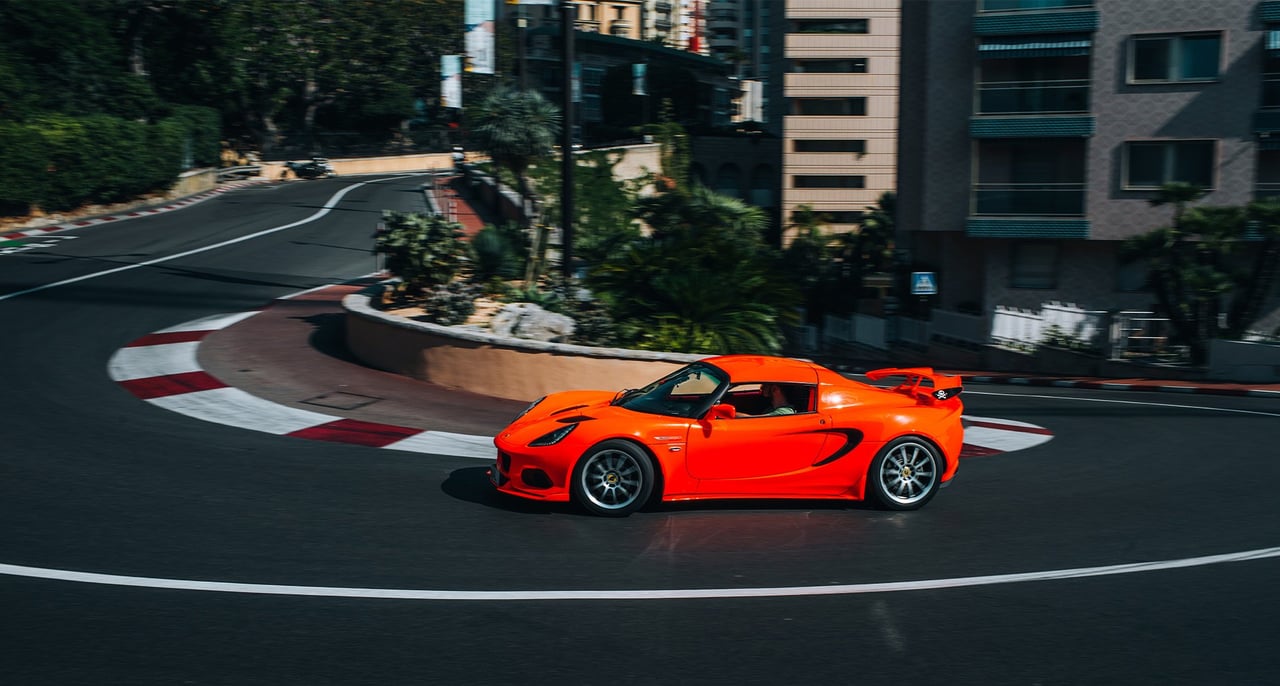
Turning north and pointing the car back towards the UK, we reflect on what we’ll remember about the Lotus Elise. Sure, it leaked occasionally, it was awkward to get out of and it rattled more than a pocketful of loose change, but the Elise proved beyond doubt that less is more. More connection, more experience, more emotion.
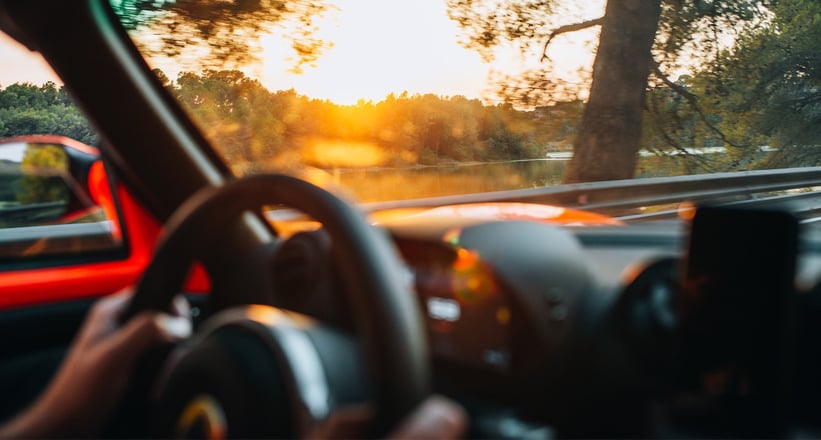
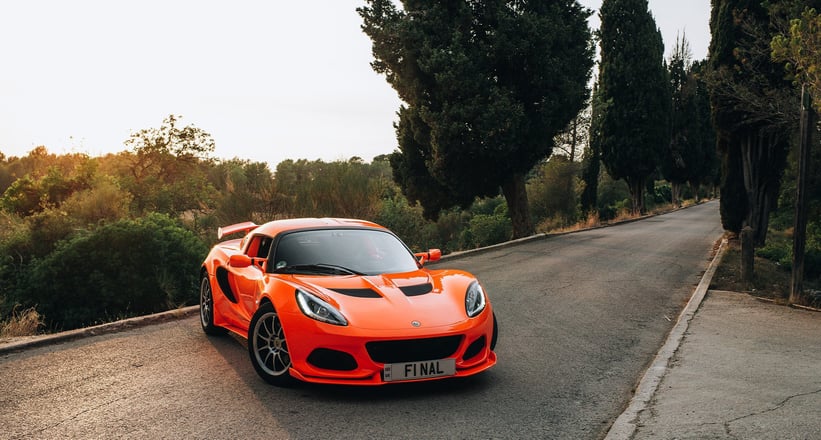
As we stare down the barrel of a future filled with triple-tonne SUVs, characterless electric powertrains and driverless vehicles, it’s a useful reminder of the beauty of three-pedal simplicity. The Elise may be gone, but it’s not forgotten. This quirky, hand-built, featherweight car still has so much to teach us.
Every trend triggers a countertrend, and one cannot help but wonder if, in a similar way to the mechanical watch renaissance following the quartz revolution, we will live to see the return of the analogue automobile; driven only at the weekends and powered by synthetic fuel.
Let’s pray for a Second Coming.
Photos by Jon Gorman
Words by Rob Ellerington















